Concawe Review
Concawe Reviews
AIRNET
AIRNET is the acronym for the Thematic Network on Air Pollution and Health.
The Network has been funded by the Commission’s DG Research to help with the interpretation of results of European r...
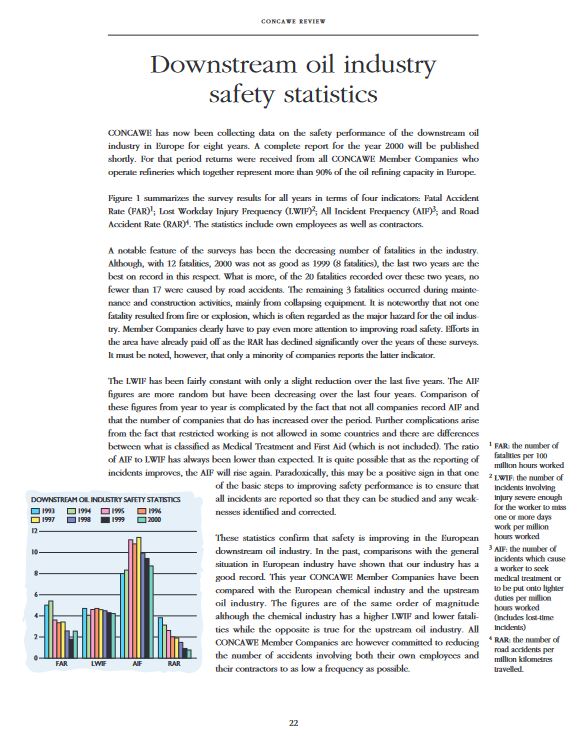
Concawe Reviews
Downstream oil industry safety statistics
CONCAWE has now been collecting data on the safety performance of the downstream oil industry in Europe for eight years.
A complete report for the year 2000 will be published shortly. For that pe...
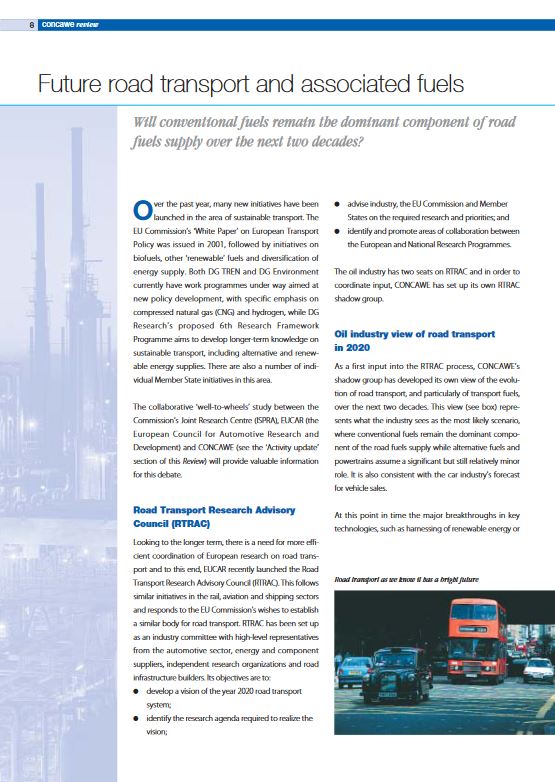
Concawe Reviews
Future road transport and associated fuels
Over the past year, many new initiatives have been launched in the area of sustainable transport. The EU Commission’s ‘White Paper’ on European Transport Policy was issued in 2001, followed b...
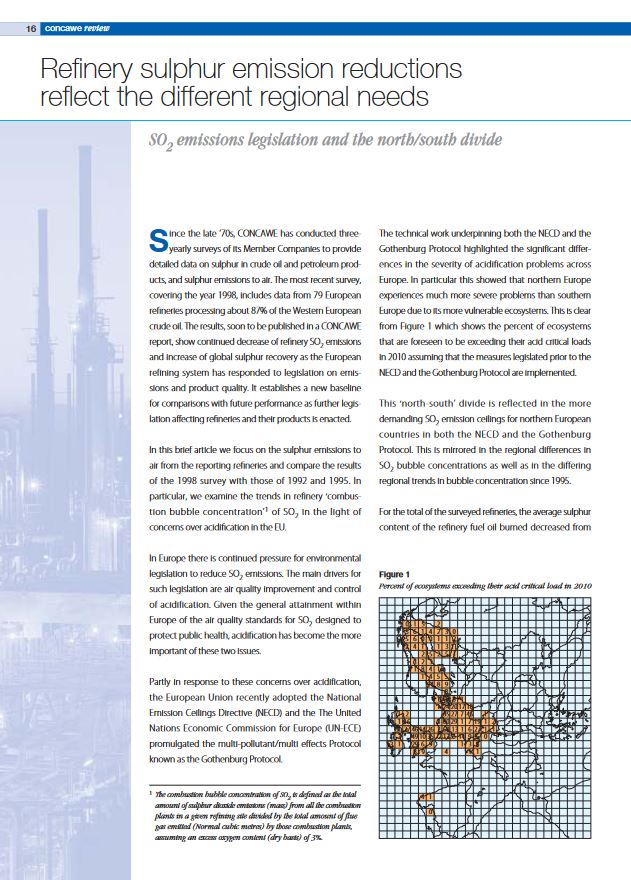
Concawe Reviews
Refinery sulphur emission reductions reflect the different regional needs
Since the late ’70s, CONCAWE has conducted three yearly surveys of its Member Companies to provide detailed data on sulphur in crude oil and petroleum products, and sulphur emissions to air. The mos...
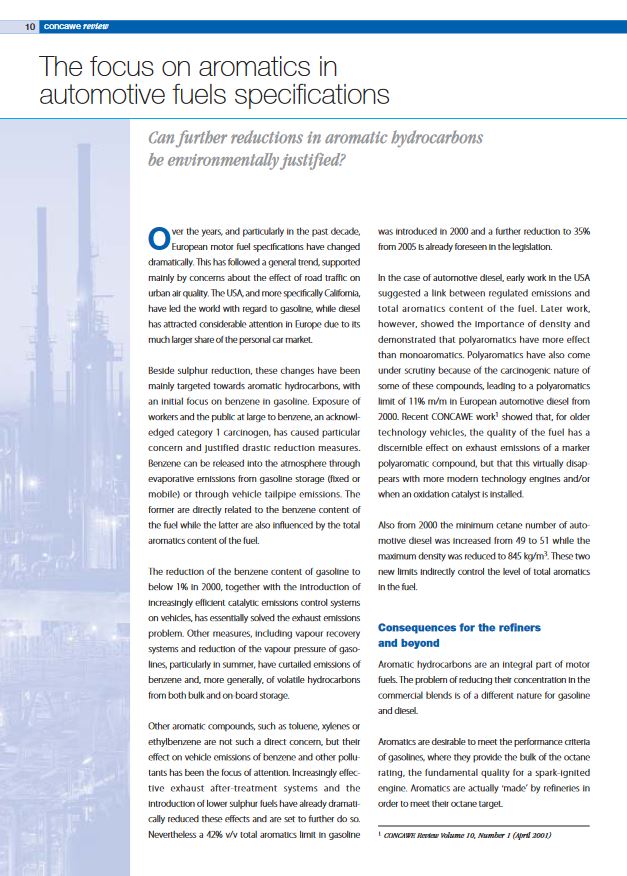
Concawe Reviews
The focus on aromatics in automotive fuels specifications
Over the years, and particularly in the past decade, European motor fuel specifications have changed dramatically. This has followed a general trend, supported mainly by concerns about the effect o...

Concawe Reviews
CONCAWE Review – Spring 2002
Volume 11 • Number 1: The CONCAWE Review has now been published for 10 years. While content is what really matters and gets all our attention, we are aware that presentation plays its role, hence th...
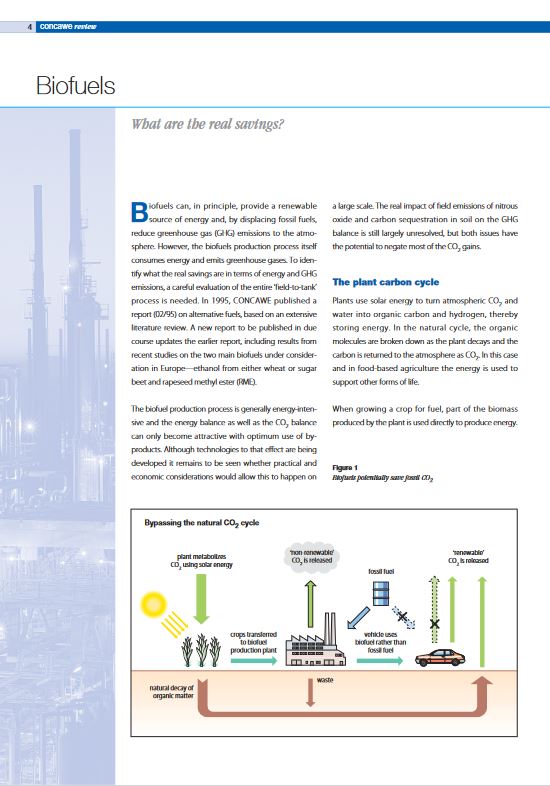
Concawe Reviews
Biofuels
Biofuels can, in principle, provide a renewable source of energy and, by displacing fossil fuels, reduce greenhouse gas (GHG) emissions to the atmosphere. However, the biofuels production process i...
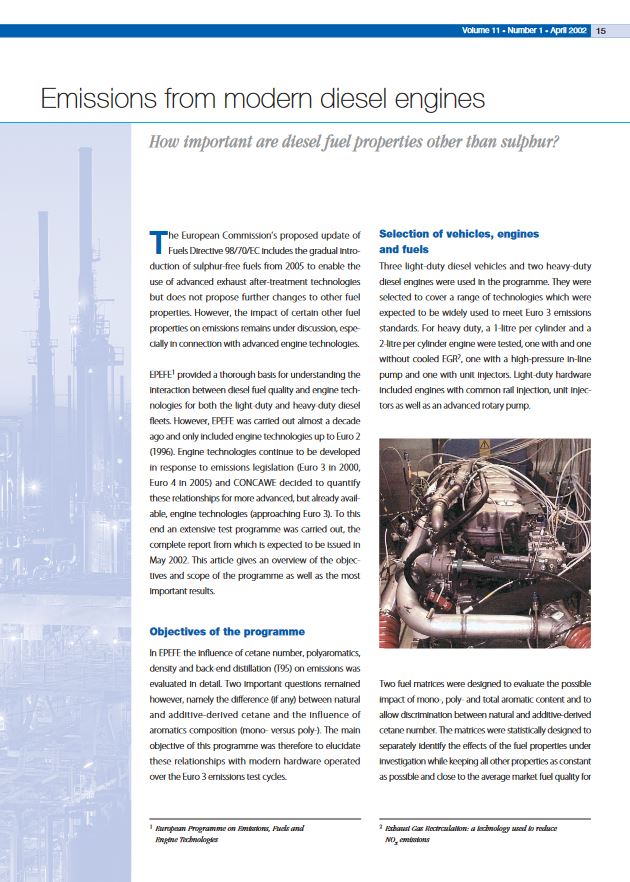
Concawe Reviews
Emissions from modern diesel engines
The European Commission’s proposed update of Fuels Directive 98/70/EC includes the gradual introduction of sulphur-free fuels from 2005 to enable the use of advanced exhaust after treatment technolo...
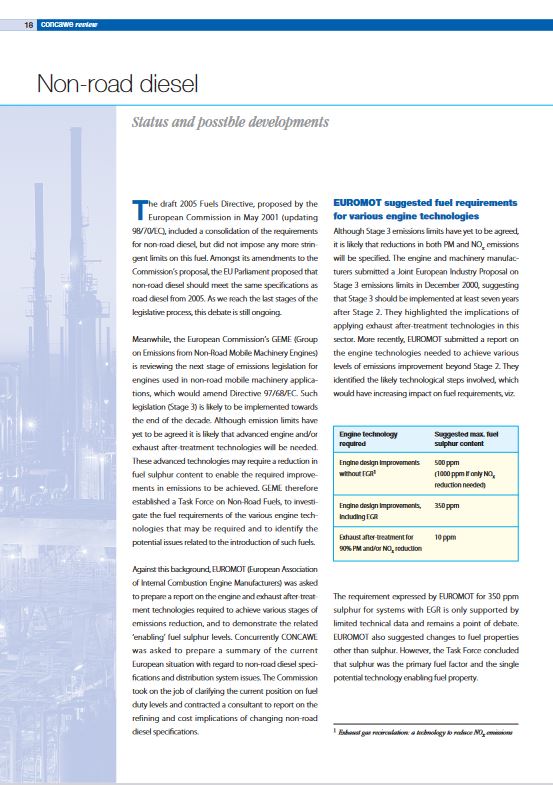
Concawe Reviews
Non-road diesel
The draft 2005 Fuels Directive, proposed by the European Commission in May 2001 (updating 98/70/EC), included a consolidation of the requirements for non-road diesel, but did not impose any more st...
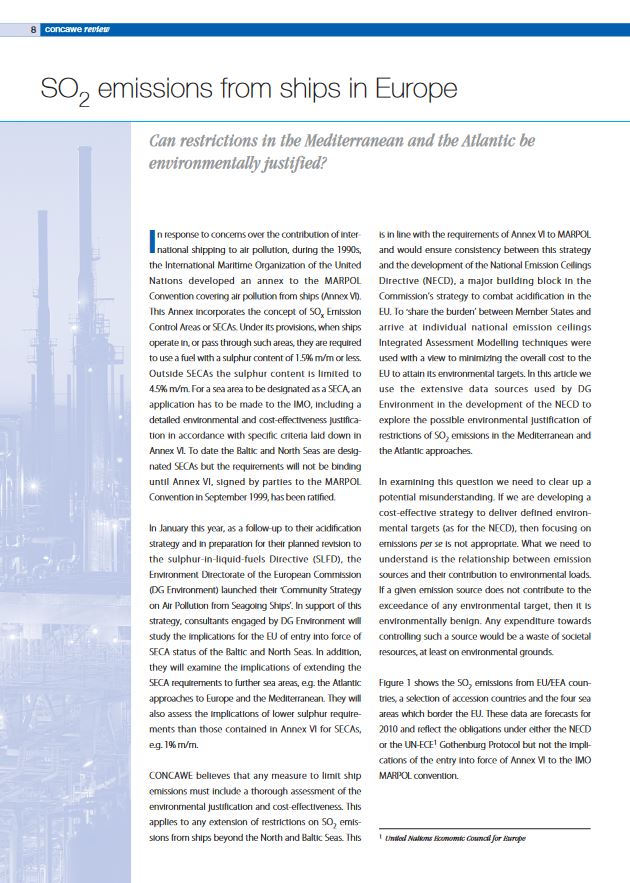
Concawe Reviews
SO2 emissions from ships in Europe
In response to concerns over the contribution of international shipping to air pollution, during the 1990s, the International Maritime Organization of the United Nations developed an annex to the MARP...
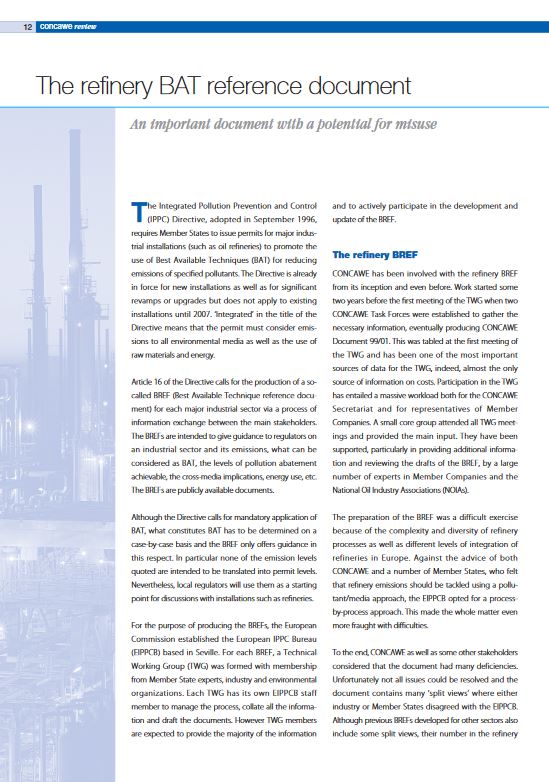
Concawe Reviews
The refinery BAT reference document
The Integrated Pollution Prevention and Control (IPPC) Directive, adopted in September 1996, requires Member States to issue permits for major industrial installations (such as oil refineries) to p...
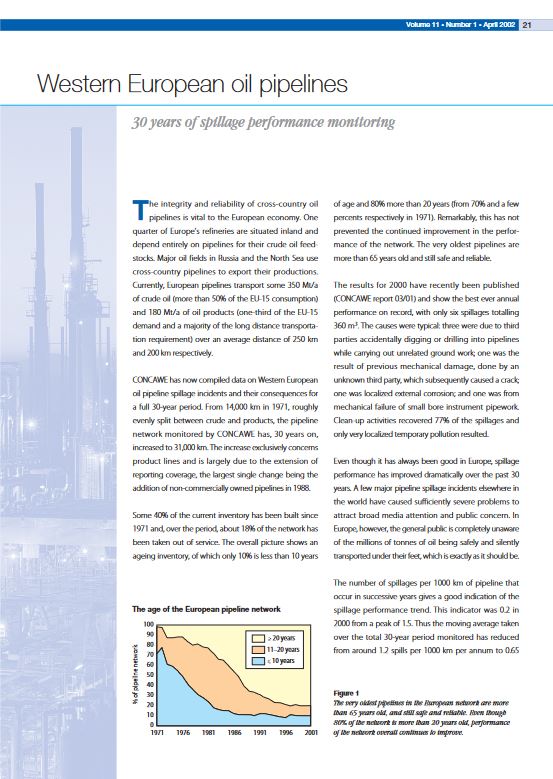
Concawe Reviews
Western European oil pipelines
The integrity and reliability of cross-country oil pipelines is vital to the European economy. One quarter of Europe’s refineries are situated inland and depend entirely on pipelines for their cr...
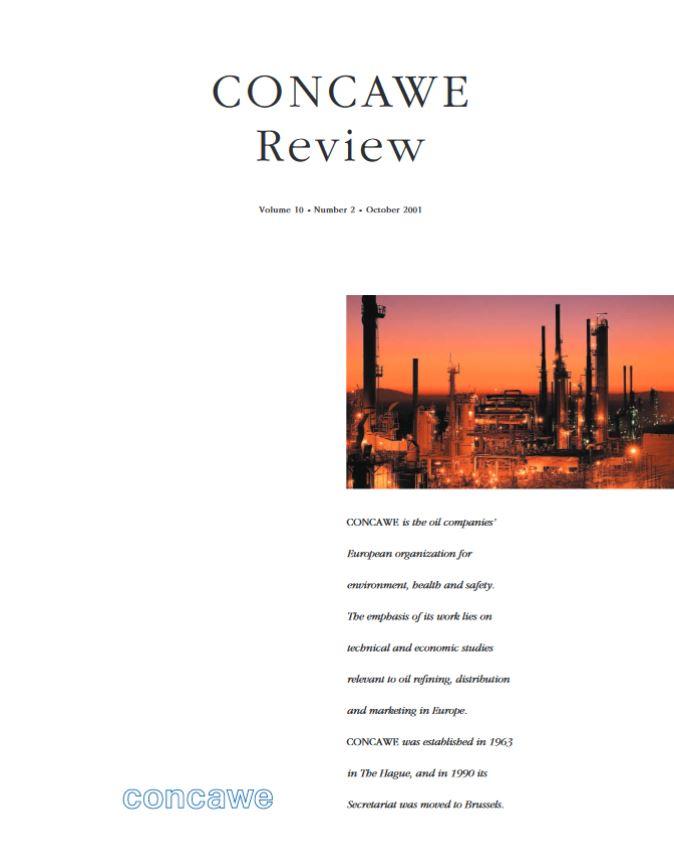
Concawe Reviews
CONCAWE Review – Autumn 2001
Volume 10 • Number 2: For nearly forty years, CONCAWE has endeavoured to provide the Community with technically sound information and studies in the field of environment and health related to the do...
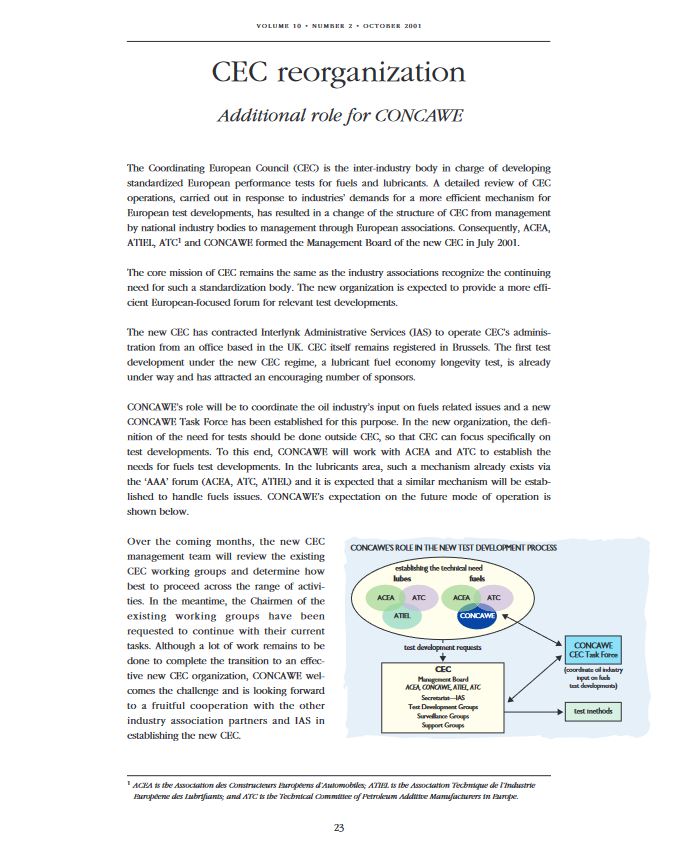
Concawe Reviews
CEC reorganization
The Coordinating European Council (CEC) is the inter-industry body in charge of developing standardized European performance tests for fuels and lubricants.
A detailed review of CEC operations, car...
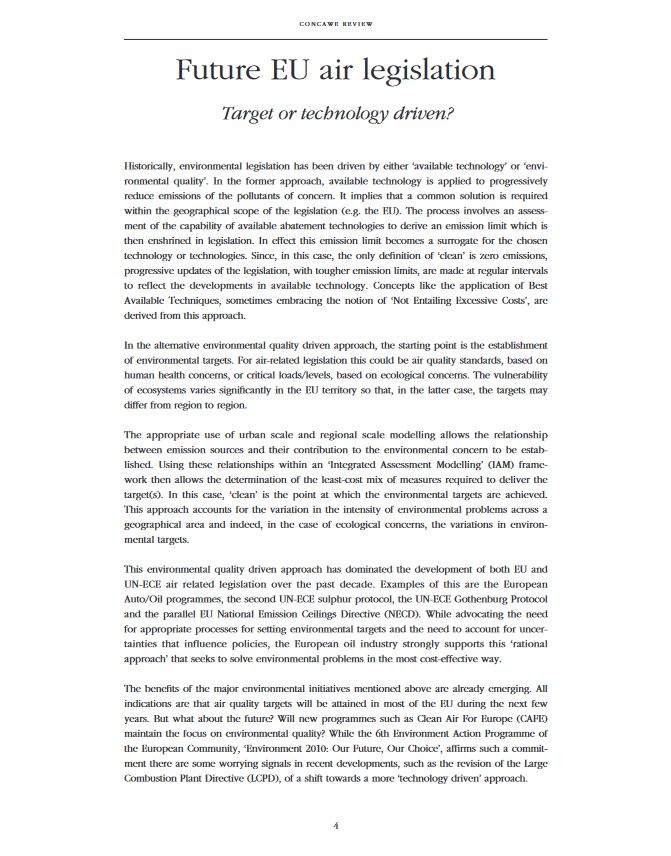
Concawe Reviews
Future EU air legislation
Historically, environmental legislation has been driven by either ‘available technology’ or ‘environmental quality’. In the former approach, available technology is applied to progressively ...
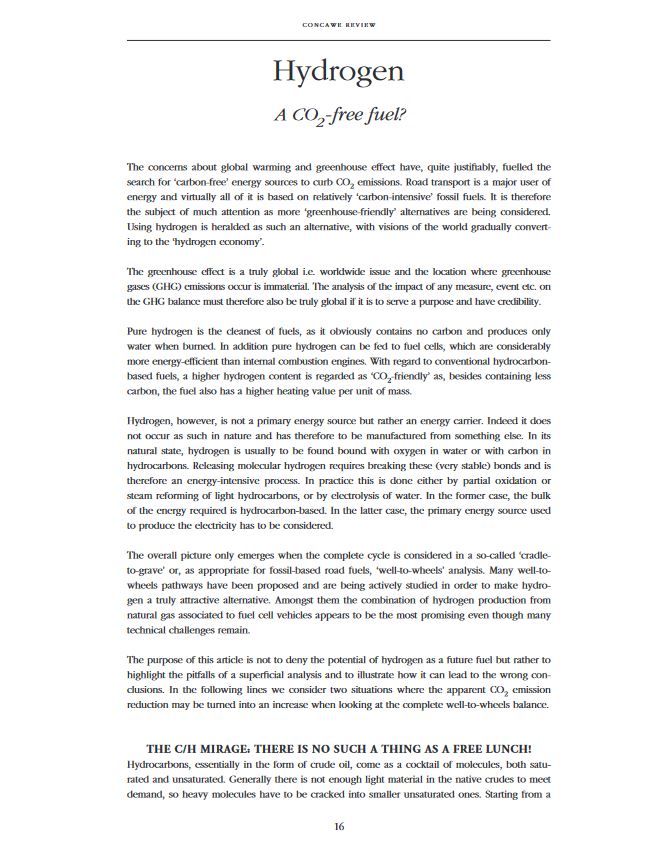
Concawe Reviews
Hydrogen
The concerns about global warming and greenhouse effect have, quite justifiably, fueled the search for ‘carbon-free’ energy sources to curb CO2 emissions. Road transport is a major user of energy...
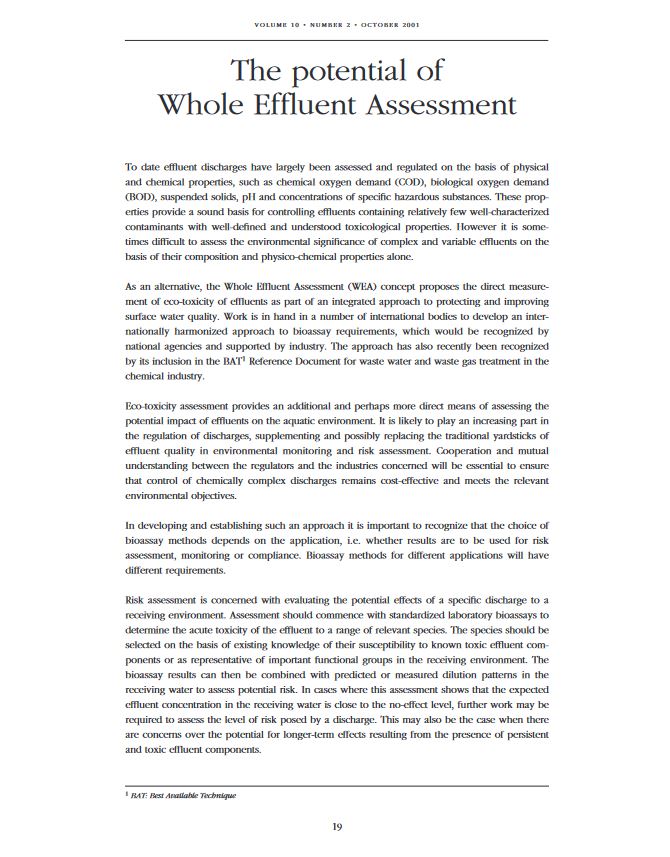
Concawe Reviews
The potential of Whole Effluent Assessment
To date effluent discharges have largely been assessed and regulated on the basis of physical and chemical properties, such as chemical oxygen demand (COD), biological oxygen demand (BOD), suspended...
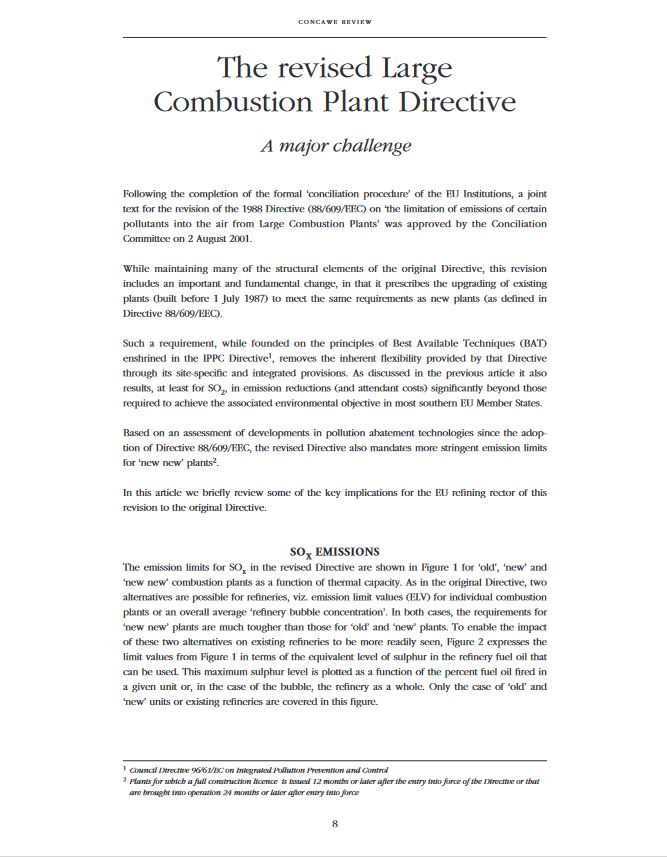
Concawe Reviews
The revised Large Combustion Plant Directive
Following the completion of the formal ‘conciliation procedure’ of the EU Institutions, a joint text for the revision of the 1988 Directive (88/609/EEC) on ‘the limitation of emissions of certa...
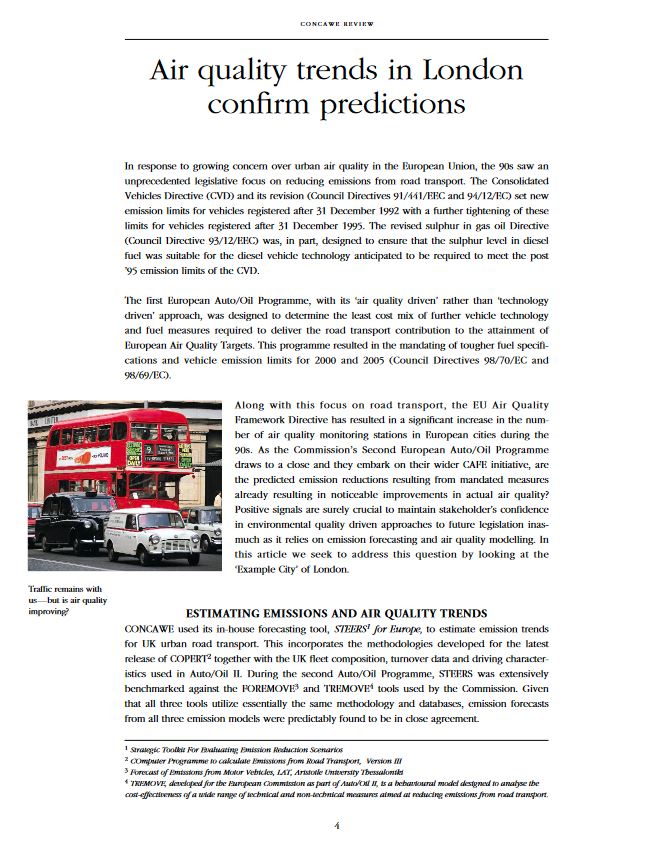
Concawe Reviews
Air quality trends in London confirm predictions
In response to growing concern over urban air quality in the European Union, the 90s saw an unprecedented legislative focus on reducing emissions from road transport. The Consolidated Vehicles Direc...
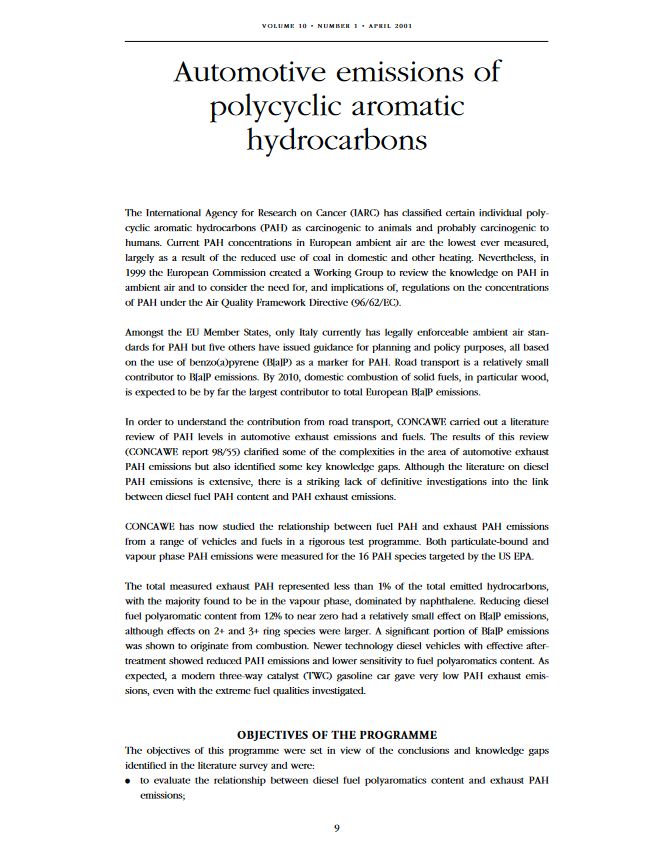
Concawe Reviews
Automotive emissions of polycyclic aromatic hydrocarbons
The International Agency for Research on Cancer (IARC) has classified certain individual polycyclic aromatic hydrocarbons (PAH) as carcinogenic to animals and probably carcinogenic to humans. Curren...
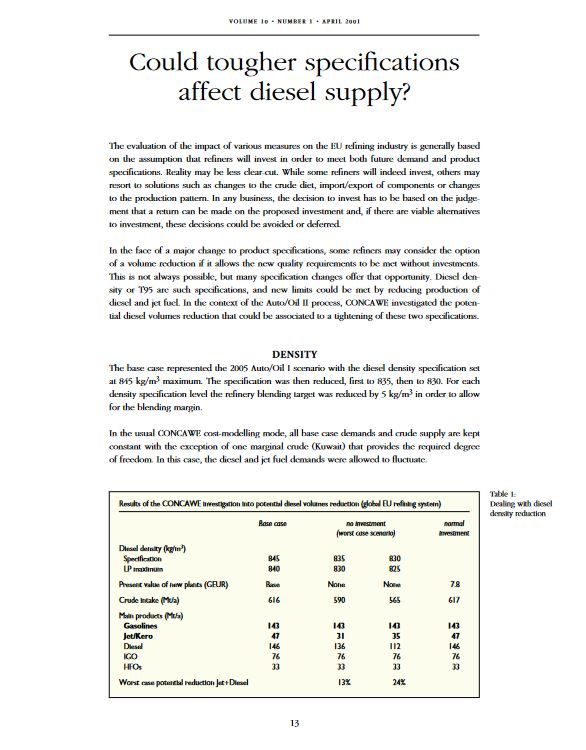
Concawe Reviews
Could tougher specifications affect diesel supply?
The evaluation of the impact of various measures on the EU refining industry is generally based on the assumption that refiners will invest in order to meet both future demand and product specificat...
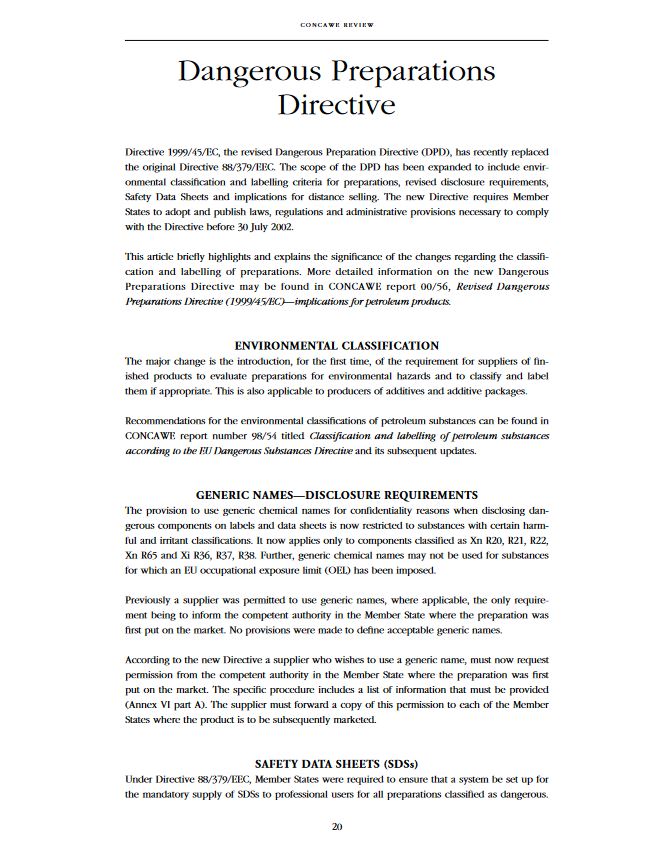
Concawe Reviews
Dangerous Preparations Directive
Directive 1999/45/EC, the revised Dangerous Preparation Directive (DPD), has recently replaced the original Directive 88/379/EEC. The scope of the DPD has been expanded to include environmental classi...
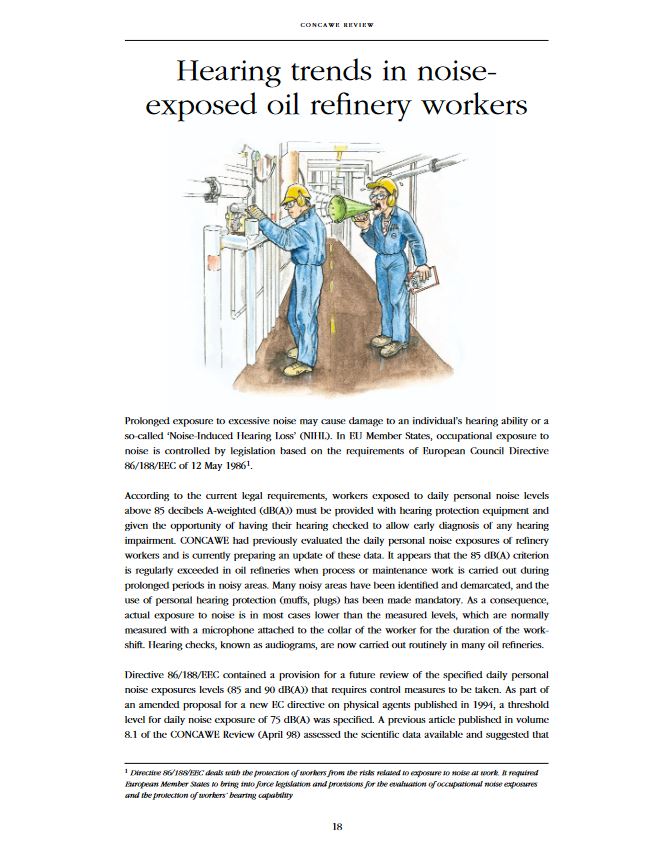
Concawe Reviews
Hearing trends in noiseexposed oil refinery workers
Prolonged exposure to excessive noise may cause damage to an individual’s hearing ability or a so-called ‘Noise-Induced Hearing Loss’ (NIHL). In EU Member States, occupational exposure to noise...
